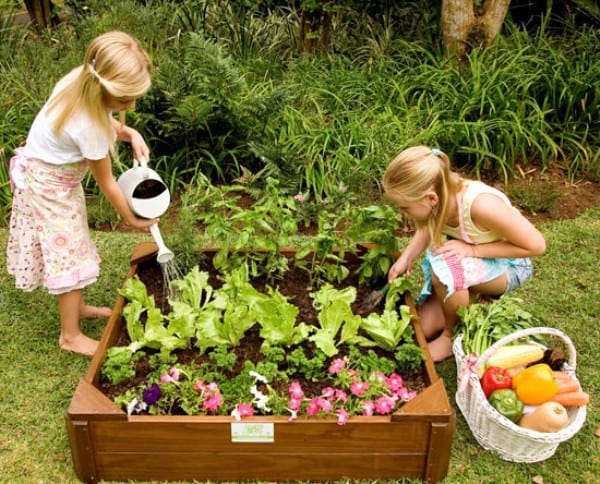As a parent, one of your jobs is to teach your kids life skills. There are many skills to teach over the years, from cooking to cleaning to financial skills. Some parents may not think to include gardening on that list, but gardening is an important skill for your children to learn.
By knowing how to garden, your children will be more self-sustaining. They'll be able to fight back against rising grocery costs by growing their own fruits and vegetables. Plus, they'll have a solid understanding of nature and how it works.
You and your kids will make so many lasting memories together when you garden. From picking out the seeds to harvesting the end product, you'll enjoy many good teaching moments and fond memories to look back on as they get older. Who knows; maybe their introduction to gardening will lead to a career in forestry or horticulture!
We've got a full guide here on how to garden with your kids. Remember to let them lead the way. This is their garden, after all! You're only here to provide information and guidance. Make sure to bookmark this guide so you can return to it at any point during the process. Have fun!
Vegetable Gardening For Kids
When we were young we always looked forward to that magical day in May when coming home from school to find Dad in the backyard with the garden map and seed packets littering the grass all around him. This meant it was gardening day.
We loved it, and always knew that our garden would be a part of adult life.
Fruition
Now that you're all grown up and can have your own garden, you can look forward to the feel of the soil, the fresh herbs, greens, and vegetables that are sorely missed during the long winter months just as they were during childhood. Now add a new facet to your enjoyment: your kids' vegetable garden.
The Plan
Make a small raised garden box, 4 x 4, one for each of your children and one for you. They are the masters of these little garden boxes. Before you start the garden, have a chat about these little boxes and what it would mean for them to be successful. They should choose any fruit or vegetable to grow in them, but they need to learn to water and weed them.
To get a lot more information about raised bed gardens, check out Benefits of Raised Bed Gardening to help you decide how far you want to go with it.
After you lay out the ground rules, it's time to get to work. Help your kids choose seeds that grow in your climate. If your four year old insists on planting the pit from their lunch time plum, let them. This is their garden.
After planting their gardens, kids will rush out each morning in eager anticipation of their seeds sprouting. They'll be thrilled to see each new baby plant pushing its way up. Definitely help them with weed identification when the plants are small, but they soon learn what plants they want and which ones should go.
Unexpected Results
You know that kids will love planting seeds and watching them grow. What child doesn't love that? You'll be surprised, however, when their interest doesn't wane as the tasks take on a more chore-like nature.
Interest often grows as the garden itself does. This can turn into teaching moments as your kids adapt to the need for patience before the harvest. Not only will you get to treat your inner child, these gardens will treat your own children as well.
Perhaps even more unexpected than kids enjoying weeding and learning patience will be what happens at the dinner table in the fall. As you prepare dinner, routinely check the garden for anything that is ready to harvest. Watch your kids announce with pride each vegetable, herb, or salad leaf that issued from their garden box. Then, to your shock, they'll scarf down previously untouchable food items like spinach and broccoli!
The time spent selecting seeds and nailing together a few boards will pay off in far more than your kids' vegetable garden's growth. It'll pay off in family togetherness, knowledge of botany, a reduced grocery bill, and in healthy eating habits.
